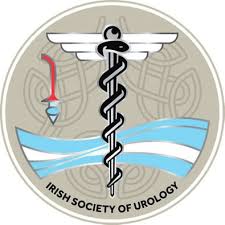
The Irish Republic has a rich cultural heritage, and a strong track record in medical research, as well as in scientific progress. Administratively, it lies outside the auspices of the United Kingdom but, traditionally, has always been an important part of BAUS.
Urological training in the region is administered by the Royal College of Surgeons in Ireland although, ultimately, training remains under the jurisdiction of the UK Joint Committee on Higher Surgical Training.
Email Killian Daly (BSoT Rep)
Training Centres
| Irish Republic training hospitals (recognised by the HST in Urology): |
- Cork University Hospital
- Mercy Uiversity Hospital
- St James' Hospital, Dblin
- Tallaght University Hospital, Dublin (use the link below to email the TPD, Robert Flynn)
- St Vincent's University Hospital, Dublin
- Mater Misericordiae University Hospital, Dublin
- Beaumont Hospital, Dublin
- Galway University Hospital
- University Hospital Limerick
- University Hospital Waterford
Email the Training Programme Director
|
Training in Ireland
As in the UK, urology training in Ireland is provided under the jurisdiction of the Urology Special Advisory Committee (SAC) of the Joint Committee on Surgical Training (JCST). Application to the urology training scheme in Ireland, however, is not made through national selection but through a separate application process which can be found here.
Traditionally, urology in Ireland has always had a smaller number of trainees than other specialities, with training concentrated in eight teaching hospitals. One of the major benefits of this is that you will rotate through at least four of the major academic units during your training.
As a urology trainee on a specialist scheme, you'll get the opportunity not only to learn core urology procedures, but to also gain experience in the various urology sub-specialities from experienced trainers.

Training Programme
The higher surgical training scheme in Ireland is a six-year programme which means that our trainees can operate with a high level of independence at CCT.
There are approximately 20 trainees on our training scheme, with an intake of 2-3 new trainees per year. Typically, you'll spend four years of training in Dublin hospitals and two years of training outside Dublin in Cork, Galway, Limerick or Waterford.
The structure of service provision in Ireland is such that each hospital on the training programme provides you with exposure to all major subspecialist domains, in addition to general core urology.
You'll acquire experience in paediatric urology through rotations in regional paediatric units located in Cork, Galway and Limerick.
Teaching Programme
Your training programme has a defined curriculum that trainees have to complete. Biannual assessments, training courses, wet labs and modalities such as the Intercollegiate Surgical Training Programme (ISTP) are used to track your progress.
Download the ISTP training document
Research and Audit
Research projects from Irish urology departments are routinely presented at international meetings such as the EAU & BAUS, as well as at the AUA annual scientific meetings.
Publications from Irish trainees also appear in "major impact factor" urology journals.
 The Irish Society of Urology
The Irish Society of Urology
The Irish Society of Urology (ISU) was founded in 1956 to promote the speciality of urology and its related medical sciences in Ireland, and to encourage & promote urological training & scientific research.
The Society is administered by the Royal College of Surgeons in Ireland, and advises both the Irish Department of Health and the JCHST on urological training and manpower issues. The BJU International is the official journal of the Society.
You'll be encouraged to apply for junior membership of the ISU which is open to all trainees in urology in Ireland. A junior representative from the ISU attends the Annual General Meeting (AGM) of the Society, but may not vote.
Irish Society of Urology website

The Bottom Line
There is one thing that binds the Irish Republic together - its cities. City living in Ireland is always lively, cultural and, at the same time, relaxing. You know there'll always be a warm welcome waiting for you wherever you're training. In the spaces between the cities, the countryside and coastlines are, of course, breathtaking.
According to the multidimensional, work-life balance framework defined by the Organisation for Economic Co-operation and Development (OECD), Ireland occupies tenth place on the league table of countries with the best work-life balance, scoring 7.9 points out of a possible 10 - Holland tops the league, with a score of 9.3, closely followed by Denmark.
Contacts & admin info for Irish Republic
← Back to Deaneries & Reps page